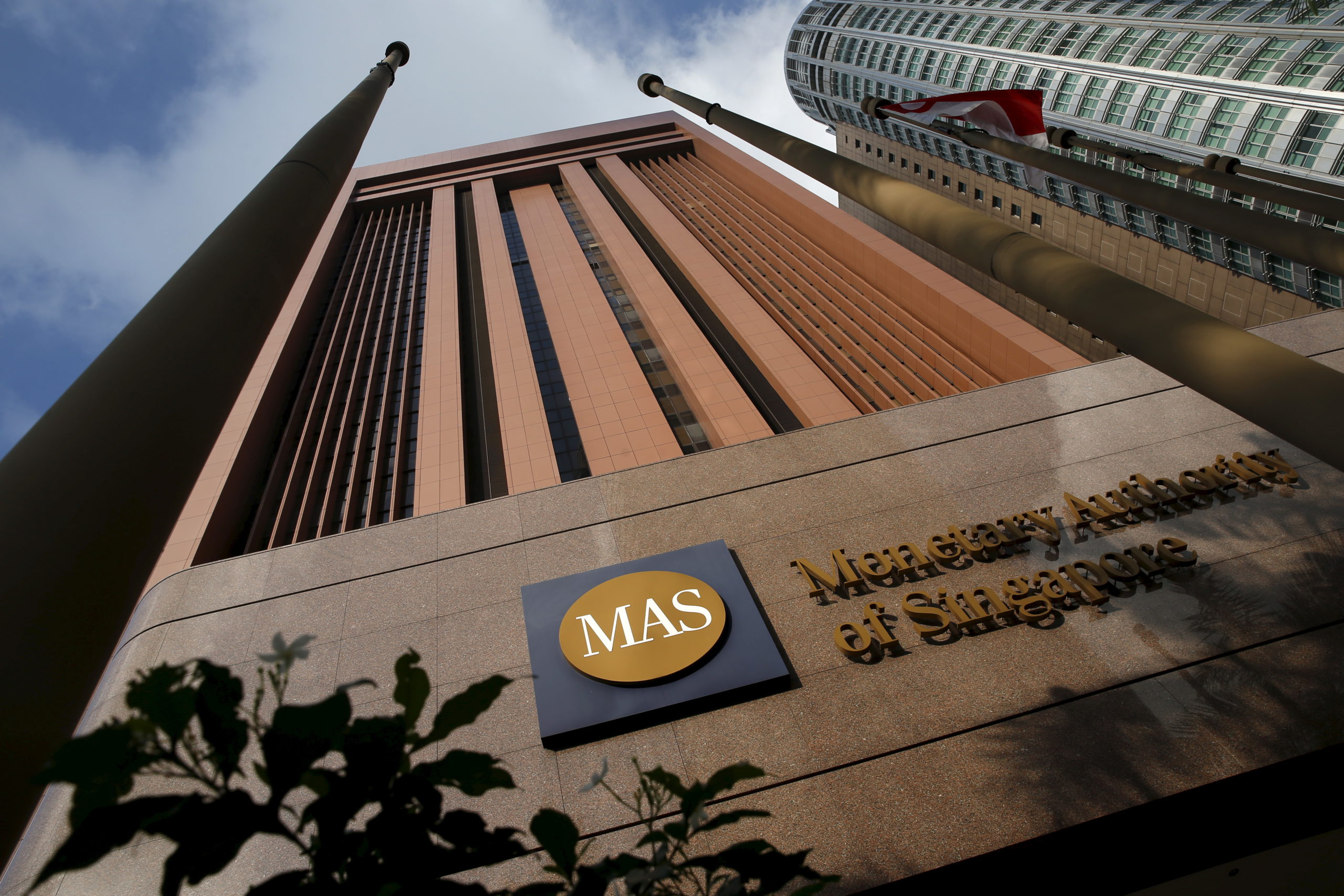Singapore swap rates set to narrow gap with US as MAS shift seen
Singapore’s unusual approach to monetary policy will give traders a chance to profit from a narrowing gap between the local currency and US dollar interest-rate swaps.
The difference between two-year overnight indexed swap rates in the two currencies is near the tightest level in more than a year, allowing traders to profit from receiving fixed-rate payments in the greenback and paying in Singapore dollars.
That trade looks set to become even more profitable as the Monetary Authority of Singapore (MAS) gets closer to its own version of policy easing, following the Federal Reserve’s pivot to rate cuts.
“The spread between the two swap rates will narrow further if the Monetary Authority of Singapore eases its own monetary policy,” said Frances Cheung, head of foreign exchange and rates strategy at OCBC “We cannot rule out a policy shift happening as early as at the October meeting should core inflation ease more.”
Unlike most of the world’s major central banks, the MAS focuses on the value of the currency as its main policy tool, allowing market forces to set the level of interest rates.
When it eases policy, it pushes down the value of the Singapore dollar, which in turn puts upward pressure on interest rates as traders demand higher returns for investing in a weaker currency. Rates in the city are also heavily influenced by those in the US.
The last time the Federal Reserve embarked on an easing cycle, in 2019, the gap between two-year swap rates in Singapore and the US narrowed by more than 50 basis points, falling by around two-thirds.
At the time, the Singapore swaps were linked to an old reference rate; they now reference the Singapore domestic interbank overnight rate.
The MAS left its monetary policy unchanged for a fifth meeting in July, following benign core inflation and robust economic growth data. While the central bank signalled easing was unlikely before 2025, further signs of a moderation in core inflation open the window for it to ease policy next month.
There is “an increased risk of the MAS easing in October but our base case remains for no change in its FX policy through 2024”, according to Nomura Holdings.
The Singapore dollar was trading at around 1.2941 against the US dollar on Thursday (Sep 19), near its highest level for a decade.





